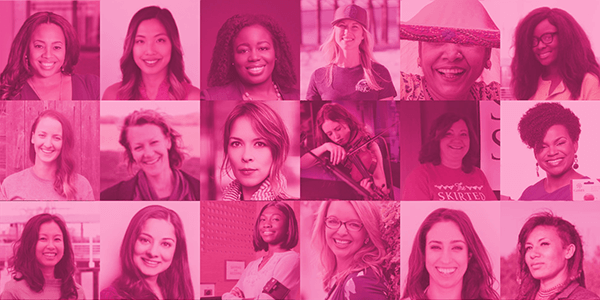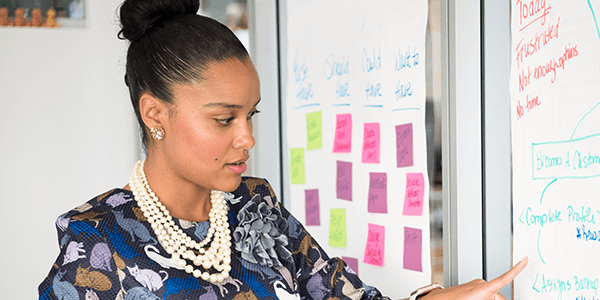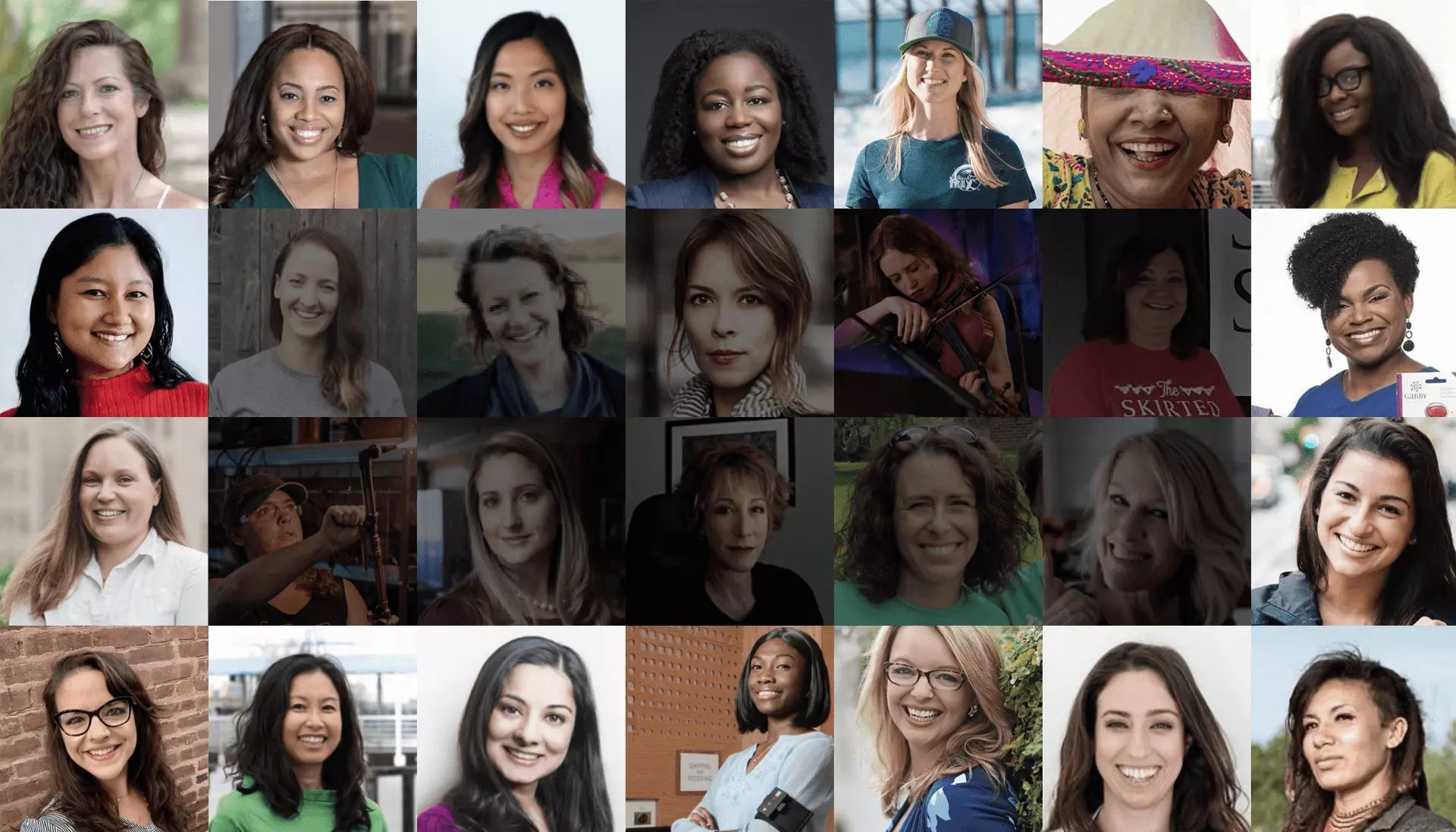

January 17, 2024
December 2023 Fashion Design Grant Awarded to Slow Goods Studio

Slow Goods Studio
Woman Entrepreneur:
Meghan Grubb
Her Website:
https://slowgoodsstudio.com/
Congratulations to Meghan Grubb, Founder of Slow Goods Studio for being the WomensNet $10,000 December Business Specific Grant recipient in the category of Fashion & Interior Design.
Recently, WomensNet Advisory Board member Jama Hernandez sat down with Meg for an exclusive interview. You can listen to their conversation and view the transcript below.
Video Transcript
WomensNet: Hi everyone. Welcome to a conversation with our grant winner for December, 2023. Today we have the pleasure of chatting with Meg Grubb of Slow Goods Studio, who is our Business Specific Grant winner
I’m Marcia Layton Turner. I’m one of several WomensNet Advisory Board members, and I have the great pleasure of chatting with our winners and hearing their stories. So thank you for making time to chat with me today. And I thought maybe we’d just start kind of at the beginning. Could you tell everybody a little bit about your company and where the idea to start it came from?
Meg: Thank you. My name is Meg Grub. My background is in art and design. And about four or five years ago, I started to get really interested in the fields of slow fashion and ethical fashion. It wasn’t something that hadn’t really occurred to me for the first three and a half decades of my life, where my clothes come from, who makes them, things like that. But I began to become more interested in that and that led me to start to make my own clothing.
As I was experimenting and exploring and making my own clothing, I started to share this with the larger community of makers and creative people that were also interested in kind of knowing the full history of how their clothing was made, what fibers were used, what the end of life of that clothing looks like…
And I met with this really enthusiastic community of people that were interested in things that I was making. And that was kind of the start of the business. From there, I decided to launch this small brand, this small label. We’ve been in business for about 18 months, making all of our garments here in the United States and providing customers with a lot of transparency in the supply chain for that garment so that people, when they purchase a piece of clothing, can know that the person that made that clothing or wove that textile was paid a fair wage and can build a life on that.
WomensNet: Thank you so much for sharing. Now let’s talk about business planning. Because usually when you’re at the idea phase of your business, you start to think about ‘is this viable and how would I run it?’ Did you develop a business plan? Did you turn to any specific resources that you found were really helpful in developing a plan?
Meg: So I actually didn’t write my first business plan until about nine months after I launched Slow Goods. But I found it to be a really useful tool, and I’ve revised it a couple of times since. And each time I do, I find it to be something where I learn a lot from having to answer questions that aren’t necessarily about the day-to-day running of the business but are about making sense of it from a much larger perspective. Kind of a wider, broader-view perspective. And from the perspective of stakeholders that aren’t myself.
So, when I launched Slow Goods, I felt like I was really just investing in the website and the very first product that I launched with, and it was very much just kind of a figure-it-out as I go along. And then kind of once I was in that process, going through the process of making a business plan was and has been super helpful. And one of the resources that I used was the Tory Birch Foundation. They had some templates for business plans. That’s the most recent revision that I’ve done, was using some of their resources and templates. So that’s something that could be helpful to others.
WomensNet: That makes sense. Just for anybody watching, it might be helpful to know that there are small business development centers across the US and you can make an appointment for some free consulting, regarding your business plan, whether you need market research or help putting together financials. It’s free.
What have you done to spread the word about your business? What strategies have you found effective at letting others know about your brands or your companies? Have you done a lot of marketing outreach?
Meg: Yeah. A lot of the marketing that I’ve done has been via Instagram. I wasn’t really a part of the Instagram community, until a few years ago when I started making my own clothing. And it wasn’t the brand. I didn’t have a business at the time. I just was connecting and learning from other creative people who were also making clothing in the sewing community. And that was just like a really information-rich, inspiration-rich environment for me at the time as I was learning. I connected with a lot of people there, who just shared this interest. Then as the business started to develop, I started a separate Instagram account for the business. And I think because my personal making came first, that helped to initially seed some of the interest in the business.
And then from there, the business really grew. Social media in general can be a very fraught place. I have mixed feelings on it, but I do know that it’s been a rich experience and a really connecting experience to find other people that are interested in slow fashion, ethical fashion, making their own clothes, experimenting… all of that.
So without Instagram, I don’t know if I would’ve had the courage to start the business without having that kind of built-in community. So it’s been a really powerful tool for me. At the same time though, it hasn’t been something that I’ve thought of as a marketer because I’m not doing paid advertisements. I’m not kind of trying to do that whole algorithm thing yet. So I feel like there’s a whole lot more that I should think about in terms of marketing and finding new people that are interested in this business. And I haven’t really had capacity up until this point in time, but hopefully in the future, I will.
WomensNet: But I think what you did was really smart, and maybe you didn’t go about it strategically, but you found your market on Instagram and then developed a business to serve it. So, that’s great that you were able to sort of verify that there is interest in this.
Meg: Yes, exactly. It felt very fortuitous, very lucky. Maybe not that strategic, but it really worked out.
WomensNet: Fran – how about you? Any lessons learned? Something that you wish someone had told you early on?
Meg: Yes, I feel like I could take that last bit from Fran and just put that on a recording and like play it to myself: “Your personal energy is a very finite resource”…I can totally relate. I think that kind of like idealism and optimism and maybe like the completely unrealistic idea of my own time and energy… is why I was able to start the business. So there’s a part of me that’s really grateful for that kind of naivete, or whatever it may be. Because I think going back in time, if I knew everything that would happen in this first 18 months, I don’t know if I would’ve had the courage to do it.
There have been so many bumps and challenges and setbacks. So it’s been so much more than I expected it to be, but I realized that that’s a place in which I can really grow and learn a lot and stretch myself. If it was everything that I expected it to be, then it wouldn’t be as gratifying of an experience or as much of a growing experience.
I think I’ve been comfortable, but I’ve become even more comfortable with the idea of being the dumbest person in the room. I don’t know what’s going on and feeling comfortable in that place and being like, ‘yes, I’m just gonna ask a bunch of questions.’
I’m gonna set my pride aside or any sense of whatever I have about myself aside. I’m gonna learn as much as I can about this thing because that’s what we’re all doing all the time. And I know in the past I’ve suffered from the perception that other people just know more than me or there’s some secret knowledge that I haven’t unlocked yet, or whatever it is, fill in the blank. And kind of just bursting that myth over and over and over and over again. And just working through any of those challenges or new learning opportunities has been a really humbling experience, but also a really gratifying experience. ‘Cause I feel more ready than ever to keep taking on whatever the next thing is that I don’t know about, and figuring it out. And that feels good.
WomensNet: So, how can members of the WomensNet community show support for your businesses?
Meg: The thing that would help Slow Goods is to just ask questions about where your clothes come from. Or who made this, and were they paid a fair wage? And as consumers of anything, whether it’s clothing or any other physical product, being able to ask the people that you buy it from, ‘where’s your factory and do you have protections for your work workers there?’ I think kind of just nurturing that curiosity about the stuff that we produce as humans on this planet is a really healthy mindset to have.
I think when we do, we get more connected to the humans that make the products that are in our lives. Again, whether it’s clothing or anything else or food, you know, thinking about the local food movement and healthy ecosystems and things like that.
So I like to apply all those principles to how I think about running this business and why I’m running this business. And making that connection with customers and sharing those values is one of the most gratifying parts. So…that curiosity and asking those questions, I think, is the most supportive thing. And it kind of lifts us all up.
If you wanna learn more about Slow Goods, the website is www.slowgoodsstudio.com, or we’re also on Instagram at SlowGoodsStudio. And yeah, just getting curious and thinking about the clothes that you wear as an expression of yourself in both visual aesthetic ways, but also of your values too.
WomensNet: Excellent. Thank you all so much for taking the time out of your busy day to share your story with the WomensNet community. Congratulations again on being our December Fashion Design grant winner.

















